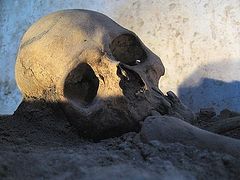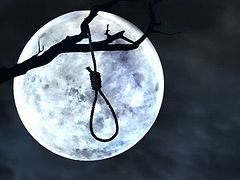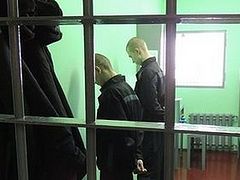Is there any problem with being pro-life and supporting the death penalty? I didn't think so, until a conversation years ago got me thinking. I was talking with friends about "Sanctity of Life Sunday" -- the annual day my church sets aside to pray for an end to abortion.
Their response: "If Orthodoxy values the sanctity of life, why does it say nothing about capital punishment?"
I objected that it was absurd to equate the value of the unborn with those who've killed. They've forfeited life's gift by taking it.
But the exchange left me unnerved, so I asked my priest exactly what our church's teaching on the death penalty was.
To my frustration, he replied that there isn't one answer. He knew of no explicit statement in church councils or other sources of tradition, but encouraged me to research for myself.
He did offer that when Prince Vladimir of Kiev embraced Orthodoxy in 988, he abolished executions in his realm, as he found them incompatible with a society that had turned toward Christ. To my chagrin, I couldn't dismiss St. Vladimir as a liberal.
So, I started looking for precedents, and found the same of Byzantium: as Rome turned to Christ, it not only rejected abortion, and exposure of infants -- but largely abandoned executions (especially crucifixion, for obvious reasons), in favor of penal servitude, exile and "life in prison, without parole."
Orthodox societies generally declined to execute even those who'd forfeited all expectation of mercy. This stemmed not from any sense that capital offenders were themselves victims, but from a sense that their lives belong to God alone.
Meanwhile, theological arguments for capital punishment failed to address that concern -- even the precedent that executions are repeatedly mandated in the Old Testament. That is God's Word, but must be understood in light of the Gospel, which shows less interest in the deaths of sinners.
More evidence emerged from church fathers. In his homilies on Cain and Abel, Ambrose of Milan asks why God spares the life of the first murderer, even marking him so others won't slay him.
His conclusion: to teach us that, "The person who hasn't spared the life of a sinner has begrudged him the opportunity for remission of sins and deprived him of all hope. He, will in fact be subject in equal measure to divine justice." Executing a murderer deprives them of repentance, and is itself a sin.
Slowly, my support for capital punishment was chipped away by examining historic Christian norms.
Perhaps if pro-lifers are called hypocrites for supporting capital punishment -- and progressives for thinking it's okay to abort "fetuses" while murderers deserve life -- then both are half wrong? Perhaps all life is God's gift, and shouldn't be taken away -- not because of what that says about the condemned, but about us.
Historic Christianity isn't so silent on executions after all. And if America ended them, that would be quite Christian.





That is not to say that anything in Christianity militates in favor of the death penalty either. God decreed, "Thou shalt do no murder." (which is the proper translation of that commandment). Thereafter, He specifically directed that intentional murder was to be punished by execution.
So one could say this much: It is disingenuous to oppose the death penalty as contrary to Christianity. Yet there is nothing unchristian about opposing the death penalty.
But a criminal can be kept from harming others by imprisonment or penal labor.
In some states in America, even children have been killed by the state.
By man his blood shall be shed;
For in the image of God
He made man."
Thus God said in the (new) covenant with the holy Patriarch Noah, just after He carried out an universal execution against evildoers. St. Ambrose somehow forgot that...